News & Updates
Obstetric fistula stories and announcements
Obstetric fistula stories and announcements
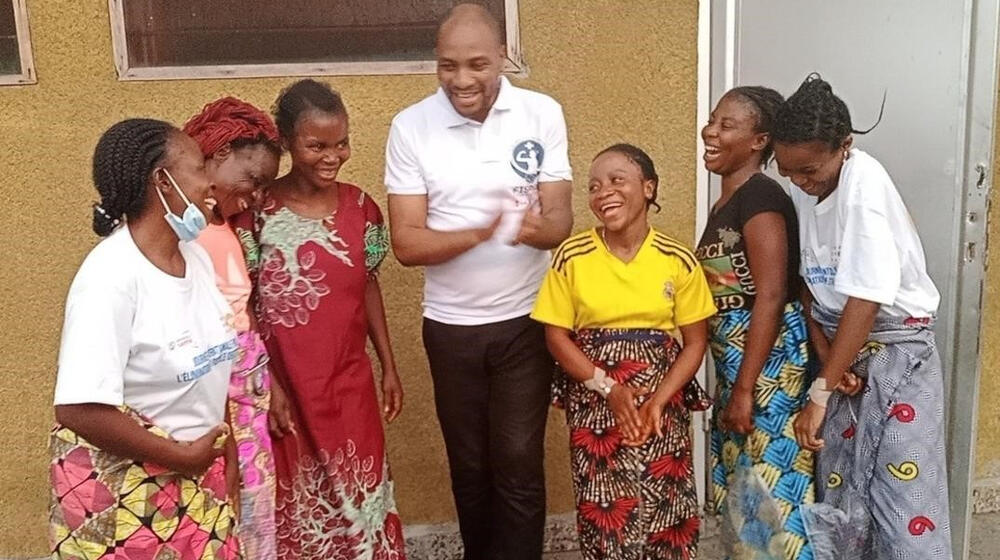
KINSHASA, Democratic Republic of the Congo/KURIGRAM DISTRICT, Bangladesh/KILIFI, Kenya – Pemba was called “ndoki,” or “witch,” by her community, including her father and siblings. Sojina felt like a prisoner in the room she was banished to, forbidden to step outside even to worship. Jamila’s career as an early childhood development teacher came to an end.
Read MoreKINSHASA, Democratic Republic of the Congo/KURIGRAM DISTRICT, Bangladesh/KILIFI, Kenya – Pemba was called “ndoki,” or “witch,” by her community, including her father and siblings. Sojina felt like a prisoner in the room she was banished to, forbidden to step outside even to worship. Jamila’s career as an early childhood development teacher came to an end.
All three women had undergone prolonged, obstructed and agonizing labour. All three lost their babies. And all three developed obstetric fistula, the childbirth injury that left them leaking urine and faeces and rendered them pariahs in the only homes they knew.
Pemba, from a village in Bandundu region in the DRC, was 15 when she found herself pregnant and abandoned when her boyfriend fled to neighbouring Angola. “My baby did not survive. I cried for three days and couldn’t eat. After the delivery, I started to see permanent urine flows.” The boyfriend eventually returned and wanted to marry her, but her village and family said she was cursed. A sister living in the capital paid for her to go there to seek care, but because of the permanent odour, she was stigmatized, unwelcome to join in meals, greeted with humiliations and insults.
“My father no longer considered me his daughter. He hadn’t spoken to me for almost five years even when he was in Kinshasa,” Pemba said. “When I asked to return to the village, he refused. He demanded my sister kick me out of her house, so for the past three years, I have been living with friends.”
“Something terrible happened and changed everything”
Sojina was six - eight weeks away from her due date when she began experiencing severe pain. Married at 16, she first became pregnant at 18 and delivered a healthy baby boy. Now here she was, five years later, in days-long excruciating pain, which her husband and family members assured her would disappear with rest. But no longer able to tolerate the situation, she went to a health facility, where she was told the devastating news that she had been in labour all that time, and now the baby was dead. In a matter of days, she started leaking urine uncontrollably; the doctor told her it would stop after a few days. It didn’t.
Because of the stigma surrounding fistula survivors in Bangladesh, Sojina’s husband made her return to her father’s rural village alone, where she was isolated in a room nobody else entered.
“I was devastated. My first child was not with me. I was heartbroken by the loss of my second child. I was about to lose my husband,” she recalled. “The only things I could do were to wash my clothes and stay in that room like a prisoner.”
“I was too embarrassed to go to work”
For the past five years, Jamila had been visiting clinics for treatment. The pain and leaking worsened during her period, and she had to change her clothes constantly. “I was too embarrassed to go to work because of the stares and discrimination from my peers for smelling of urine,” she said. An enthusiastic early childhood development teacher, Jamila, 35, lost all passion for her work, as her condition took an emotional toll on her.
In Kenya, an estimated 3,000 new fistula cases are recorded every year, and only 7.5 per cent of the women are able to access medical care.
Jamila’s ray of hope came when a community health volunteer told her about a free fistula camp organized by UNFPA and partners including Amref Health Africa, Kilifi County Government, M-Pesa Foundation and Flying Doctors Society of Africa. During the one-week camp, 119 women who had been ostracized by their communities were screened, while 30 patients were admitted for fistula reconstruction surgery and other gynaecological cases, including Jamila.
“I am now hopeful that I can become a mother again and go back to pursuing my career,” she said. “I want to make up for the time lost while living with fistula.”
New livelihoods, new lives
Seven years after developing fistula and of living with its dire consequences, Pemba was told by a community health worker about FisPro DRC, a UNFPA partner that treated her for free and also taught her the craft of basket weaving as a way to reintegrate into society as many women with the condition have virtually zero employment opportunities.
“I have seen a total change in my life,” said Pemba, now 22 and who has re-established a relationship with her father. “I hope that I will have a husband and that one day I will have children. I hope basket weaving will be an opportunity to start a job. This will allow me to be independent and have the means to return to my village.”
As for Sojina, who had nearly given up hope for a better future, a government field worker trained in fistula screening learned about her condition. He immediately contacted Kurigram District Hospital, where she was diagnosed and referred to the UNFPA-supported LAMB Hospital for a fistula repair and, like Pemba, livelihood training.
“They gave me ducks, which I am breeding and selling their eggs to earn money for my family,” said Sojina, now 25. “I am hopeful that I can rebuild a better life for myself. I returned home to my husband and child and we began our new life together.”
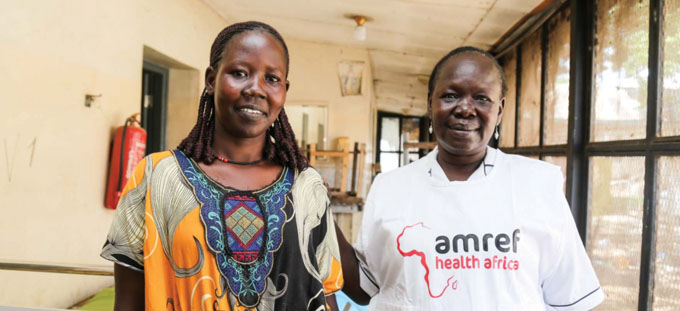
Juba, SUDAN - Soft-spoken, compassionate, and cheerful; Hayat Peter is one of the nurses who is contributing to ending obstetric fistula in Juba,South Sudan. A registered nurse by profession for the last 22 years, she has helped many patients. However, assisting fistula patients to regain their dignity is one of the biggest moments in her career, according to Hayat.
Read MoreJuba, SUDAN - Soft-spoken, compassionate, and cheerful; Hayat Peter is one of the nurses who is contributing to ending obstetric fistula in Juba,South Sudan. A registered nurse by profession for the last 22 years, she has helped many patients. However, assisting fistula patients to regain their dignity is one of the biggest moments in her career, according to Hayat.
The 42-year-old is a mother of nine children, seven of which are adopted. Her husband died in 2007 while on duty as a police officer in Yambio State. Ever since she had to take care of her family as a single mother. Apart from being a mother, her other life-long dream was to help women suffering from Obstetric fistula. Hayat works at the gynecological section of Juba Teaching Hospital, the country’s only referral hospital, and she is one of the 23 nurses trained by Amref Health Africa in partnership with UNFPA, in South Sudan to support fistula patients and offer obstetric care. “I am happy that I was trained to help women suffering from Fistula, I have supported over 200 fistula surgeries, I am proud of that,” she confirms.
Obstetric fistula is one of the most serious and tragic childbirth injuries. A hole between the birth canal and bladder and/or rectum, it is caused by prolonged, obstructed labour without access to timely, high-quality medical treatment. A mother with Fistula suffers from urinary and or fecal incontinence.
The horrible ordeal fistula patients go through leads to abandonment by family and community members, but for Hayat, she provides hope and care to them; “I do not feel they are dirty, I talk to them, we laugh, hold hands, and hug, I burn an aromatic incense around the women which produces a scented smoke that makes them feel comfortable and happy,” she explains.
During her 22-years nursing career, Hayat says most fistula patients are between 13-15 years something she attributes to early pregnancy and inadequate access to health facilities.
WHO (2018) states that 19.4% of births in South Sudan are attended to by skilled health personnel. This notwithstanding, about a third of all girls in South Sudan get pregnant before turning 15 (UNICEF, 2020).
"It is important to sensitize and educate young girls as well as communities not to expose them to sexual abuse, child marriage, and early pregnancies because their bodies are not developed enough to handle pregnancy,” says Hayat.
Her highest moments are when the survivors she serves call to express gratitude from the farthest parts of South Sudan, “Fistula survivors still call me to appreciate the free surgery that transformed their lives and this is not just once, it is rewarding and makes me proud,” she adds with beaming smile.
To meet the ever-growing need for services for Fistula patients, Amref Health Africa in South Sudan in partnership with UNFPA mentors and trains health workers and sets up fistula repair teams from various states of South Sudan. These teams include fistula surgeons, medical officers, operating theatre nurses, midwives, ward nurses, and anesthetists in obstetric fistula surgery and care for fistula patients.
Since 2019, with the support of UNFPA, Amref has restored the dignity of 80 fistula patients through surgeries in South Sudan.
South Sudan has a limited number of facilities that offer obstetric fistula repair. The medical camps are periodic compared to the backlog of over 60,000 cases. Hayat urges Amref and its partners including UNFPA to support more camps for women to pick up the pieces of their lives broken by fistula and rebuild a better life for themselves.
Obstetric fistula is preventable but also surgically curable once it occurs. In the past few years, AMREF, UNFPA and partners launched the Campaign to End Obstetric Fistula, now active to prevent and treat fistulas in more camps and to rehabilitate fistula survivors.
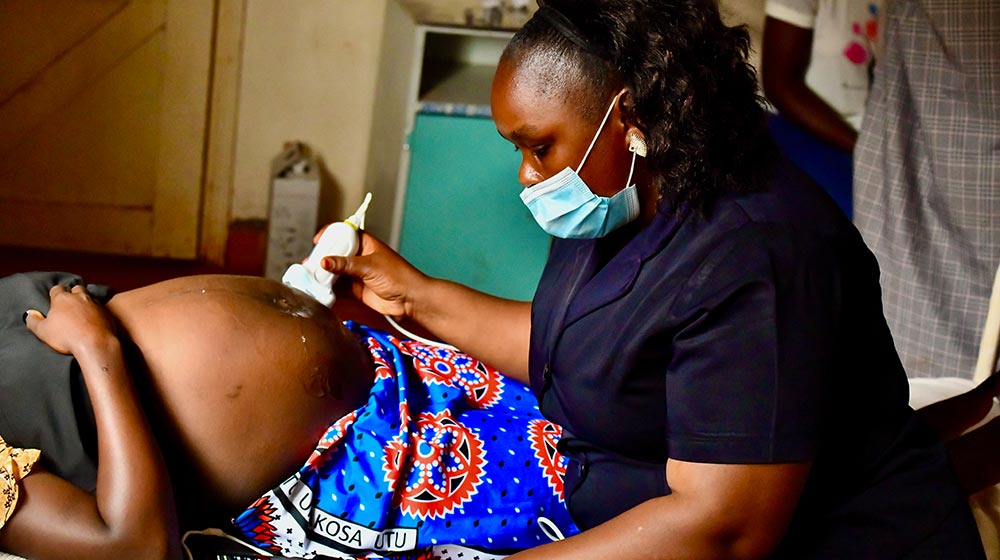
MFANGANO ISLAND, Kenya – In her four years at Sena Health Centre, midwife Goretti Adhiambo has seen too many lives lost to complications in pregnancy and childbirth. “We provide all the basic maternal health services at the health centre including antenatal care, but complicated cases have to be referred to the mainland hospital for specialized care,” she explained.
Read MoreMFANGANO ISLAND, Kenya – In her four years at Sena Health Centre, midwife Goretti Adhiambo has seen too many lives lost to complications in pregnancy and childbirth. “We provide all the basic maternal health services at the health centre including antenatal care, but complicated cases have to be referred to the mainland hospital for specialized care,” she explained.
Her health centre is located on the remote Mfangano Island in Kenya’s Homa Bay County. Reaching the mainland town of Mbita for treatment requires at least an hour’s boat ride – two, if the waters are choppy. During an obstetric emergency, this delay can be deadly.
In 2018, Ms. Adhiambo treated a young woman with labour complications. The woman was referred to the mainland for specialized care but died while being ferried to Mbita. “She was barely 18 years old, and to lose such a young life was very painful for my colleagues and me,” Ms. Adhiambo recalled.
Today, Ms. Adhiambo is the midwife in charge, overseeing the care of expectant mothers and newborns. And she has a new tool in her arsenal that can help identify complications long before they become life-threatening: an ultrasound device.
For years, pregnant women on Mfangano Island have had to travel to the mainland not only for emergency obstetric care, but also for diagnostic services as simple as an obstetric ultrasound screening. Such tools are often only available at specialist health facilities located in major towns and urban areas. As a result, pregnancy complications are often only identified at great effort and expense, too late for treatment, or not at all.
But this is starting to change.
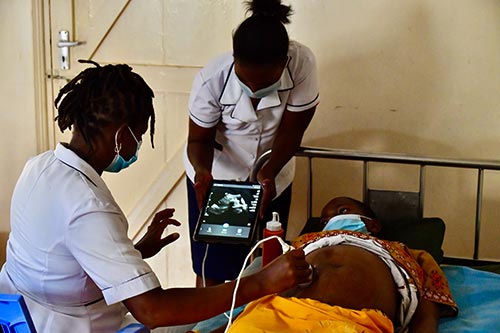
Through a partnership between UNFPA, AMREF International University and the Phillips Foundation, portable ultrasound technology – and the training to go with it – are being made available to midwives from far-flung health centres in remote parts of Kenya.
Ms. Adhiambo and others recently learned how to use the portable machine, known as the Lumify Probe, from experienced sonographers who guided them on skills including: confirming whether a pregnancy is viable, visualizing and recognizing the number of fetuses, identifying where in the uterus the placenta is, and detecting the position of a fetus. By being able to spot issues, such as breech position of the fetus or multiple pregnancy, midwives are able to provide better advice, monitoring and referrals.
“When midwives become proficient in providing basic obstetric ultrasound at point of care, early detection of pregnancy complications and timely referral to higher level health facilities can occur,” said Priscilla Ngunju, a project coordinator with AMREF International University. “Our hope is that more mothers are able to access at least one obstetric screen, done before 24 weeks of gestation, in keeping with the World Health Organization recommendations.”
The trained midwives also received Lumify Probe devices for their health facilities. And because the device is portable, the midwives are able to carry it with them when conducting home and community visits, expanding the reach of these critical services.
In addition to eliminating the cost of transport to the mainland, the programme has greatly lowered the cost of ultrasound screenings. Ultrasound screenings at the clinic cost Ksh 500 (about $5), while they can be double or triple the cost at specialist health facilities.
Ms. Adhiambo says she is happy the expectant mothers she serves at Sena Health Centre will be spared these burdens.
“I learned a lot from the training, including how to interpret an ultrasound image, locating the placenta and detection of serious birth defects,” she told UNFPA. “I can now use my skills to save the life of a mother.”
It’s easy to ignore things you don’t know anything about. Obstetric fistula is one of those things. But it’s a devastating childbirth injury to women who experience it, usually fatal to unborn babies (90 per cent of cases end in stillbirth) and – here’s the encouraging news – not only treatable but preventable.
Read MoreIt’s easy to ignore things you don’t know anything about. Obstetric fistula is one of those things. But it’s a devastating childbirth injury to women who experience it, usually fatal to unborn babies (90 per cent of cases end in stillbirth) and – here’s the encouraging news – not only treatable but preventable.
Obstetric fistula is a hole in the birth canal caused by protracted, obstructed labour in the absence of timely medical care, leaving women to leak urine and faeces. Left untreated, it can lead to infection, disease and infertility. Sentenced to a life of misery, stigma and isolation – husbands and families abandon them, communities ostracize them, employment opportunities vanish – they can suffer from mental health issues and deepening poverty.
The injury has all but disappeared in rich countries but persists in poorer countries with inadequate maternal health care – an estimated 500,000 women and girls live with the condition. Young bodies not ready for childbirth in cases of child marriage or unintended pregnancy are especially vulnerable. Women can develop fistula because they cannot afford transportation to a health facility or the services of a skilled birth attendant like a midwife.
The injury can be prevented by sexual and reproductive health care, access to contraception and access to skilled birth attendants and high-quality emergency obstetric care. With its many partners, UNFPA leads the Campaign to End Fistula, which works in more than 55 countries on prevention, treatment and rehabilitation efforts. It can be treated with reconstructive surgery, though many women and girls don’t know about treatment, can’t access it or can’t afford it. UNFPA has supported more than 120,000 surgical repairs, including for Beatriz Sebastião, pictured above © UNFPA Mozambique.
UN Member States adopted a resolution to end fistula by 2030. To that end, the theme of this year’s observance is “End Fistula Now: Invest in Quality Healthcare, Empower Communities!" Obstetric fistula is a development and public health issue, but it’s also a human rights issue, one that grants everyone the right to health and a life of dignity.
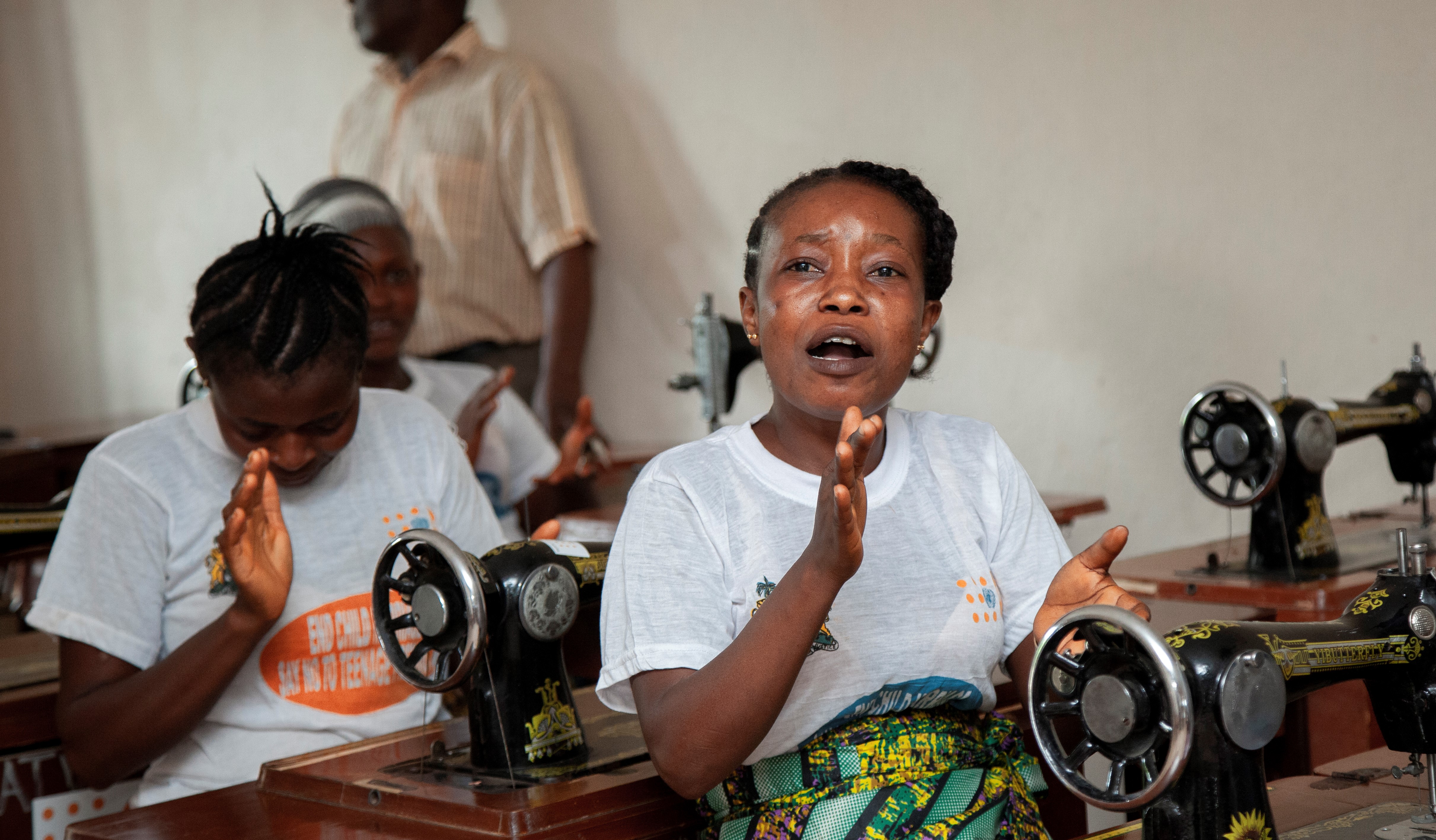
Every year on 23 May, the International Day to End Obstetric Fistula is observed by the international community as a way to rally action, commitment and support to ending obstetric fistula.
Read MoreEvery year on 23 May, the International Day to End Obstetric Fistula is observed by the international community as a way to rally action, commitment and support to ending obstetric fistula.
In December 2012, 167 countries co-sponsored a biannual resolution of the United Nations General Assembly that called on all Member States to support UNFPA and its partners in the Campaign to End Fistula. In addition, the UNFPA-backed resolution acknowledged the plight of millions of women and girls living with obstetric fistula by designating 23 May as the International Day to End Obstetric Fistula, first observed in 2013.
Subsequent resolutions have called for the dramatic acceleration of actions and commitment to end obstetric fistula by 2030, reinforcing the need for urgent efforts and greater investment to address and improve sexual and reproductive, maternal, newborn and child health, as well as to eliminate the root causes of fistula, such as poverty, inequalities and failure to ensure education, economic opportunity, gender equality and human rights for all.
A sign of global social injustice and inequity stemming from weak health and social protection systems, obstetric fistula is driven by poverty, gender and socioeconomic inequality, lack of education, child marriage and early/adolescent childbearing, among other things. Women and girls at risk of or living with fistula face economic, social, cultural and logistical barriers to care and to survival, further deepening pre-existing inequalities.
The condition is generally and often treatable, but more critically, it is largely preventable – developed countries have all but eliminated obstetric fistula. The same should be true for developing countries. Everyone deserves a life of dignity, and the day serves as a reminder that we cannot ignore such a promise.
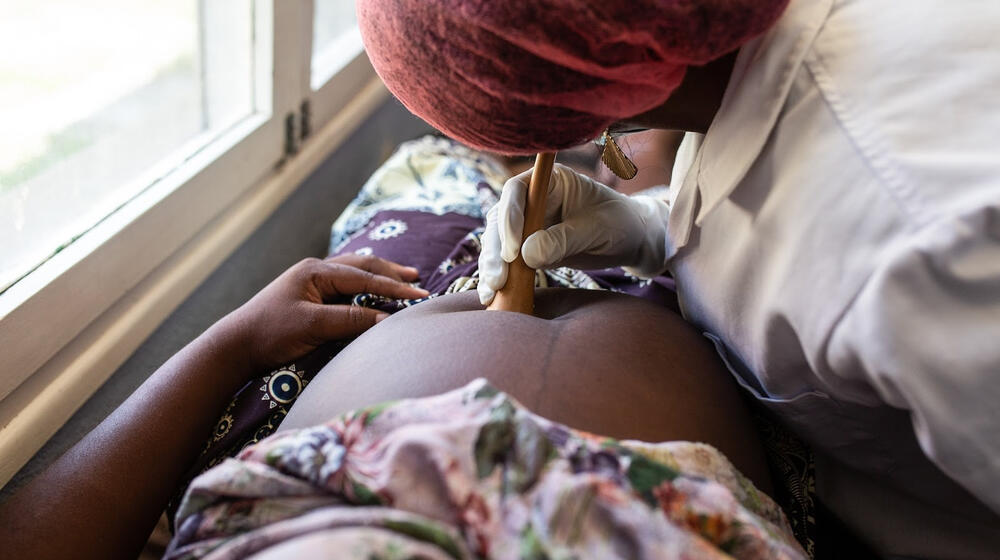
UNITED NATIONS, New York – First things first, what is obstetric fistula?
What it is: Obstetric fistula is a traumatic childbirth injury that robs a woman or girl of her health, rights and dignity. It is a hole between the birth canal and bladder that causes uncontrollable urinary incontinence. A hole between the birth canal and rectum causes faeces to leak.
Read MoreUNITED NATIONS, New York – First things first, what is obstetric fistula?
What it is: Obstetric fistula is a traumatic childbirth injury that robs a woman or girl of her health, rights and dignity. It is a hole between the birth canal and bladder that causes uncontrollable urinary incontinence. A hole between the birth canal and rectum causes faeces to leak.
Why it happens: Prolonged, obstructed labour during childbirth. The sustained pressure of a baby’s head against the mother’s pelvis cuts off blood supply, causing tissue to die and fall away; the hole left is called a fistula. Obstetric fistula accounts for eight per cent of maternal deaths, and 90 per cent of all cases in which a fistula occurs, result in stillbirth.
Who it affects and where it happens: An estimated 500,000 women and girls in more than 55 countries throughout sub-Saharan Africa, Asia and the Pacific, the Arab States and Latin America and the Caribbean are estimated to be living with fistula, with thousands more occurring every year.
Below, five more things you should know:
While the most common type is a hole between the birth canal and bladder (called vesicovaginal fistula), other types include:
Rectovaginal fistula: Hole between birth canal and rectum
Urethrovaginal fistula: Hole between birth canal and urethra (carries urine from bladder out of the body)
Ureterovaginal fistula: Hole between birth canal ureters (carry urine to bladder) and birth canal
Vesicouterine fistula: Hole between bladder and uterus
Some fistulas are caused during gynaecological procedures (e.g. hysterectomy) and Caesarean sections due to substandard health care and inadequate surgical skills training/competence. These are called iatrogenic fistulas. Traumatic fistulas are caused by sexual violence, especially in conflict areas; the destruction of the vagina is considered a war injury.
The lives of women with the condition are defined by lifelong physical and emotional suffering.
The condition can lead to infections, ulcerations, kidney disease, painful sores, infertility and death. The smell from constant leakage isolates women who are often shamed and stigmatized, abandoned by their friends and families and ostracized by their communities. They suffer from depression and suicidal thoughts and other mental health issues. Denied livelihood opportunities, they are driven deeper into poverty and vulnerability.
While it does not discriminate by age, young girls are particularly vulnerable because their bodies may not be ready for childbirth. Nine in ten births to girls between the ages of 15 and 19 occur in marriage or union. Worldwide, pregnancy and childbirth complications are the leading cause of death among girls between the ages of 15 and 19. It’s just one more reason UNFPA works to eradicate the harmful practice of child marriage.
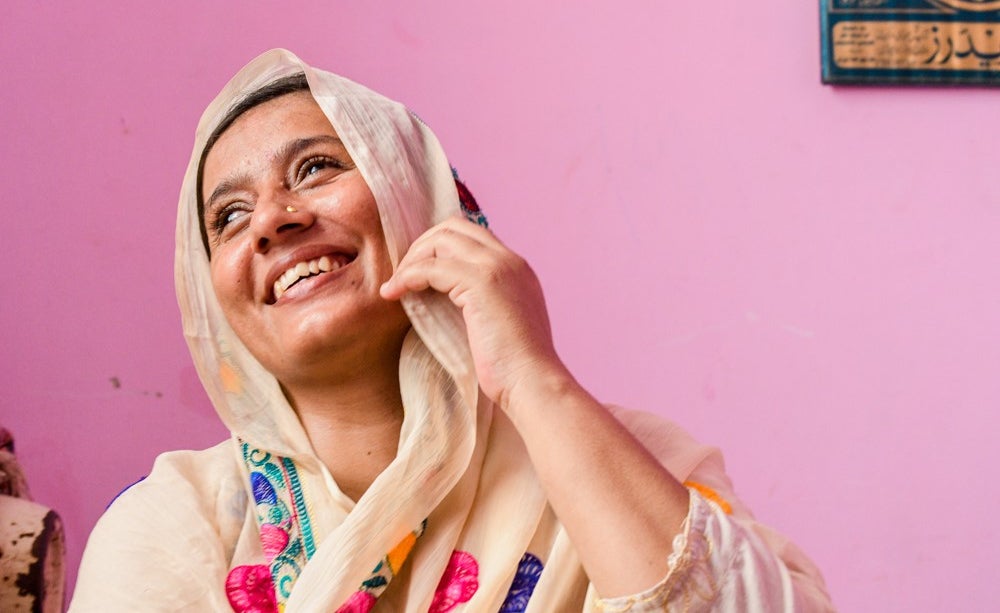
Obstetric fistula has all but disappeared in rich countries with quality health care systems and skilled professionals who can perform Caesarean sections. Midwives are a vital part of the solution. The International Confederation of Midwives states “ending obstetric fistula requires the full involvement of midwives at the community, national, regional and global levels.”
Apart from a lack of quality health services, poverty is a major social risk because it is associated with early marriage and malnutrition. Childbearing before the pelvis is fully developed as well as malnutrition, small stature and generally poor health conditions are contributing physiological factors to obstructed labour. However, older women who have already had babies are at risk as well.
In addition, because of gender inequality in many communities, women don’t have the autonomy or agency to decide when to start having children or where to give birth.
Up to 95 per cent of fistulas can be closed with surgery. A surgical repair costs $600, well beyond the reach of most women with fistula – if they’re even aware of the exact medical condition they have and that treatment exists. Through its assistance to countries and the Campaign to End Fistula UNFPA has supported more than 121,000 life-changing repairs since 2003 and trained thousands of health workers to prevent and treat fistula.
But before ever reaching the treatment stage, focus should be on prevention. Such measures include access to family planning, skilled birth attendants and emergency obstetric care. Addressing societal factors that contribute to fistula – child marriage/early union and pregnancy, girls’ education, poverty and women’s lack of empowerment – is also part of the Campaign to End Fistula strategy.
To have one’s life compromised for bringing forth new life is a devastating fate. But with awareness and will, the goal of eradicating the condition by 2030 is achievable.

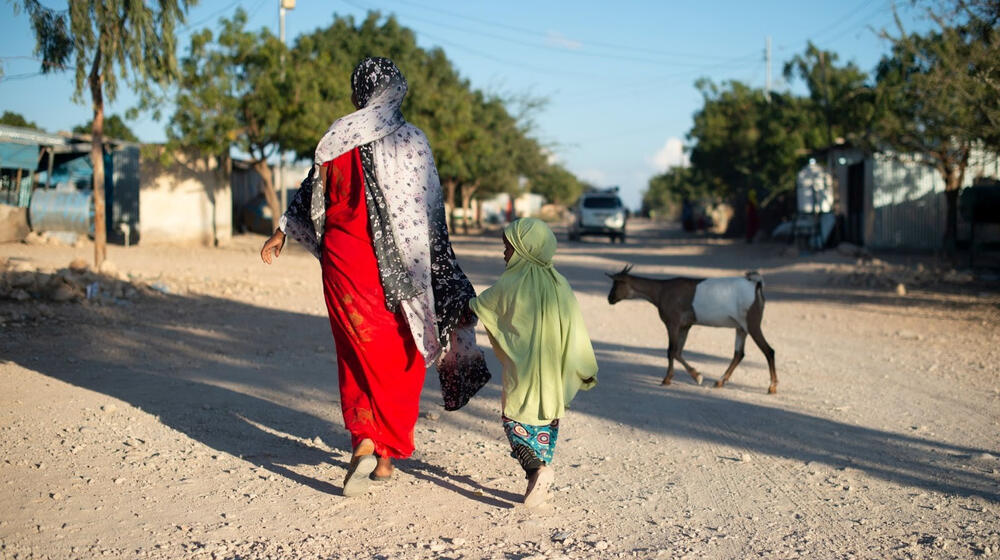
UNITED NATIONS, New York – Celebrated around the world throughout the year, Mother’s Day is exactly that: celebratory. But for some women, motherhood can be fraught.
Read MoreUNITED NATIONS, New York – Celebrated around the world throughout the year, Mother’s Day is exactly that: celebratory. But for some women, motherhood can be fraught. Women have become mothers below ground in wartime (Ukraine), under bridges after hurricanes (Honduras), in flooding hospitals during monsoon season (Bangladesh) and among post-earthquake wreckage (Haiti).
They have become mothers not by choice, but…:
…against their will as a result of rape – by a partner or stranger – or where sexual violence is used as a weapon of conflict.
…because it is expected of them by their cultures and families, even if they are not physically or emotionally ready for pregnancy.
…without knowing how conception works due to a lack of comprehensive sexual education. And when they do know, they have become mothers because of a lack of access to adequate family planning services.
Parenthood comes with sacrifices, no doubt. Even before mothers left the workforce in droves during COVID-19 to care for children attending school remotely, they were already shouldering much of the burden for child-rearing, housework, emotional labour and caring for ageing parents. They may have had to forego higher degrees, promotions or relocations. If they return to work after raising children, they may have outdated skills and face the “motherhood pay gap.” With long retirements due to longevity, their “choices” may leave them in precarious financial situations.
But the steepest price some women pay for becoming pregnant is never having the chance to experience motherhood. The global maternal mortality ratio is 211 deaths per 100,000 live births in 2017. The Sustainable Development Goals call for reducing that number to 70 deaths per 100,000 live births by 2030.
Below, five things to know about motherhood.
It’s not surprising that everything is harder in humanitarian or fragile contexts. In regards to fertility, women must contend with everything from becoming pregnant when they might not want to – because of limited access to family planning services and contraception or because of the increased risk of gender-based violence in these settings – to challenging pregnancies and childbirth due to a lack of antenatal and postnatal care and obstetric care. According to a UNFPA report, more than 500 women and girls die in emergency situations every day from complications due to pregnancy and childbirth. In conflict-roiled Yemen, a woman dies in childbirth every two hours. Approximately 120,000 pregnant and lactating women in Tigray, Ethiopia are malnourished. About 4.8 million unintended pregnancies will occur in Afghanistan by 2025 as a result of health system disruptions and gender inequality.
According to the 2017 Fragile States Index, 15 countries were considered to be “very high alert” or “high alert” (from highest to lowest: South Sudan, Somalia, Central African Republic, Yemen, Syrian Arab Republic, Sudan, the Democratic Republic of the Congo, Chad, Afghanistan, Iraq, Haiti, Guinea, Nigeria, Zimbabwe and Ethiopia), and these 15 countries – the majority considered humanitarian and fragile contexts – had maternal mortality ratios as high as 1,150 (South Sudan). For countries, the target is no more than 140 deaths per 100,000 live births by 2030.
As the report states, “Emergent humanitarian settings and situations of conflict, post-conflict and disaster significantly hinder progress… In crisis and disaster settings, the breakdown of health systems can cause a dramatic rise in deaths due to complications that would be easily treatable under stable conditions.”
Another non-shocker: women do more unpaid work than men.
A 2019 report from the International Labour Organization (ILO) puts it bluntly: “Across the world, without exception, women carry out… more than 75 per cent of the total hours [of unpaid care work] provided. Women dedicate on average 3.2 times more time than men to unpaid care work. There is no country where women and men perform an equal share of unpaid care work. As a result, women are constantly time poor, which constrains their participation in the labour market.”
Globally, in households with young children, women spend more time on unpaid care work. In 2018, mothers of children 5 years old and younger accounted for the lowest employment rates (47.6 per cent) compared with fathers (87.9 per cent), non-fathers (78.2 per cent) and non-mothers (54.4 per cent).
A sizeable reason for the disparity is gender inequality overall. According to the ILO, the value of women’s unpaid care work accounts for 6.6 per cent of global GDP, or $8 trillion; that number for men represents 2.4 per cent of global GDP, or $3 trillion.
Under Sustainable Development Goal 5 of Gender Equality is Target 5.4 – the recognition and valuing of unpaid care and domestic work – to be achieved by 2030.
According to the World Health Organization, five major complications – many preventable or treatable – account for three quarters of maternal deaths: severe bleeding, infections, high blood pressure during pregnancy, complications from delivery and unsafe abortion.
Other causes merit more examination, namely maternal deaths as a result of homicide, suicide and drug overdose. In the United States, one study reported all three as leading causes of pregnancy-associated* deaths, with homicide rates higher than in other countries. In the UK and Ireland, one report concluded that improvements in care might have led to different outcomes in pregnancy-associated deaths by suicide, substance misuse and homicide. And studies in Ethiopia and Egypt found higher prevalence of suicidal behaviour among pregnant women compared to the general population.
*A pregnancy-related death is “‘the death of a woman while pregnant or within one year of the end of a pregnancy… from any cause related to or aggravated by the pregnancy or its management, but not from accidental or incidental causes.’... A pregnancy-associated death is a maternal death attributable to a condition unaffected by the pregnancy and occurs within one year of the pregnancy.”
According to the 2022 State of World Population report, rape-related pregnancies are equally or more likely to occur than pregnancies from consensual sex. In addition, intimate partner violence (IPV) is linked to higher rates of pregnancy. Those experiencing IPV are roughly twice as likely to have their partner refuse to use contraception and twice as likely to report an unintended pregnancy.
If we did, wouldn’t we eradicate childbirth injuries like obstetric fistula?
Wouldn’t we support mothers suffering from postpartum mental health issues?
Wouldn’t every new mother be given proper time to bond with her child and recover her health without risk of losing her job?
Wouldn’t we not assume that all women everywhere are destined to become mothers, thereby devaluing motherhood as an inevitability rather than an aspiration?
Wouldn’t child care and domestic responsibilities be evenly divided?
And wouldn’t we truly make motherhood a choice by giving women and girls the information, resources and support they need: Access to sexual and reproductive health services, comprehensive sexuality education, family planning services and contraception, access to higher education and economic opportunities, protection from violence and above all, gender equality that would render the world safer, healthier and more prosperous not only for them but for everyone.
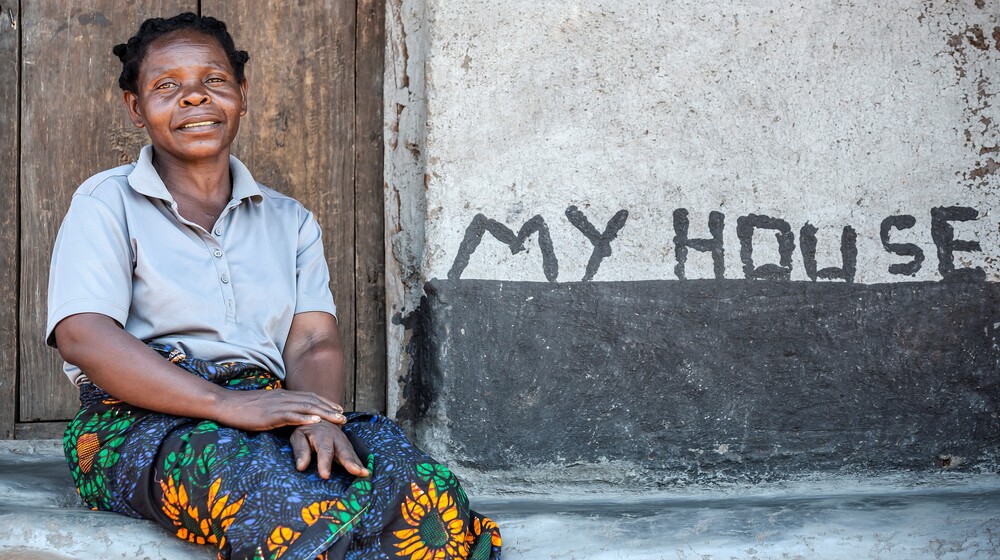
Ntchisi, Malawi-Although Marita Vula was in pain, she tried as much as possible to ignore it. The 28-year-old was experiencing her first labour pains.
Read MoreNtchisi, Malawi-Although Marita Vula was in pain, she tried as much as possible to ignore it. The 28-year-old was experiencing her first labour pains. Marita had waited for this moment and couldn’t wait to a be a mother.
“When I got married, I stayed for three years without a child,” says Marita from Kambola village in Ntchisi. “In our culture, one is expected to have a child as soon as they get married.”
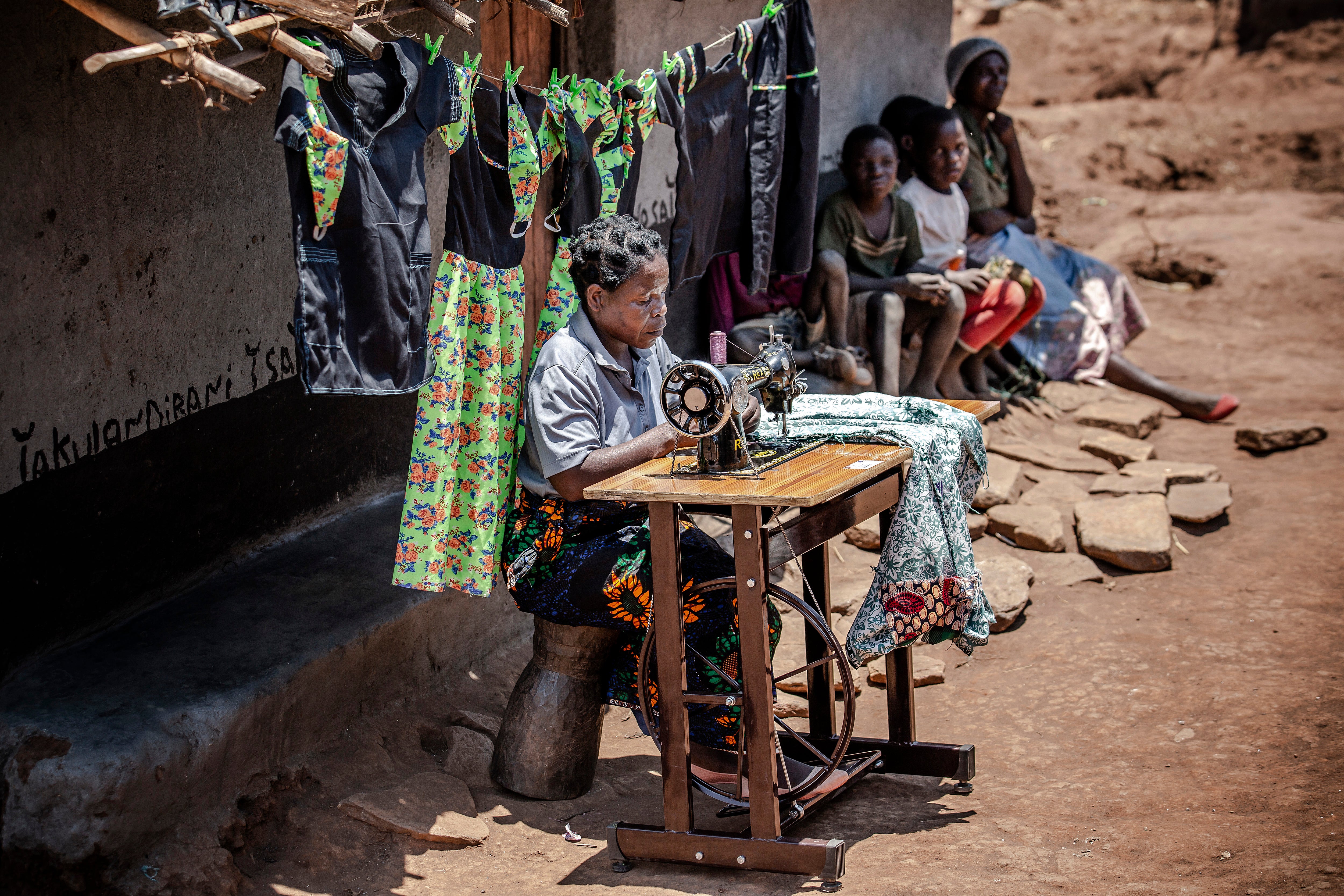
However, try as they could, Marita couldn’t get pregnant. This displeased her in-laws who took every opportunity to remind her that they wanted grandchildren.
On this particular day, Marita’s husband was tending their maize field. When he heard the news that her wife was in labour, he hurried back home. Since the hospital was too far, he decided to take Marita to a traditional birth attendant to help her deliver.
“That was the only option we had that time,” recalls Marita, adding, “I didn’t see the labor coming that soon and hadn’t planned to travel to the hospital.”
Access to maternal services still a challenge
For hours, the traditional birth attendant tried to help Marita to deliver but without luck. In desperation, the traditional birth attendant prepared some herbs, which she said would help ‘push the baby out’. Instead of helping her give birth, the herbs made Marita lose a lot of blood.
“My husband became worried and he rushed to the nearby village to hire a car,” she said. “When he came back, I had passed out. The next thing I remember was in a hospital. The look on my husband face told me that something terrible had happened.”
Marita arrived at the hospital semi-conscious. Medical staff had to perform a caesarian section to save both mother and child. Unfortunately, the child didn’t make it. Her husband had to break the sad news to her.
“This was devastating news. I was looking forward to holding my child in my hands,” says Marita.
Although Marita recovered well, she could no longer control her urine and she kept wetting herself. The prolonged labour caused her to develop a hole between the birth canal and the bladder. As a result, she developed obstetric fistula.
“When I returned home, my husband’s attitude towards me changed,” she says. “He started sleeping in his own bed.”
A ray of hope for women with fistula
For eight months, nothing changed. Eventually, her husband disappeared only for Marita to learn that he had married in another village.
“I was okay with him sleeping on another bed,” she says. “But running away from me was the last thing I expected from him. He was responsible for the pregnancy and I couldn’t have developed fistula if it wasn’t for him.”
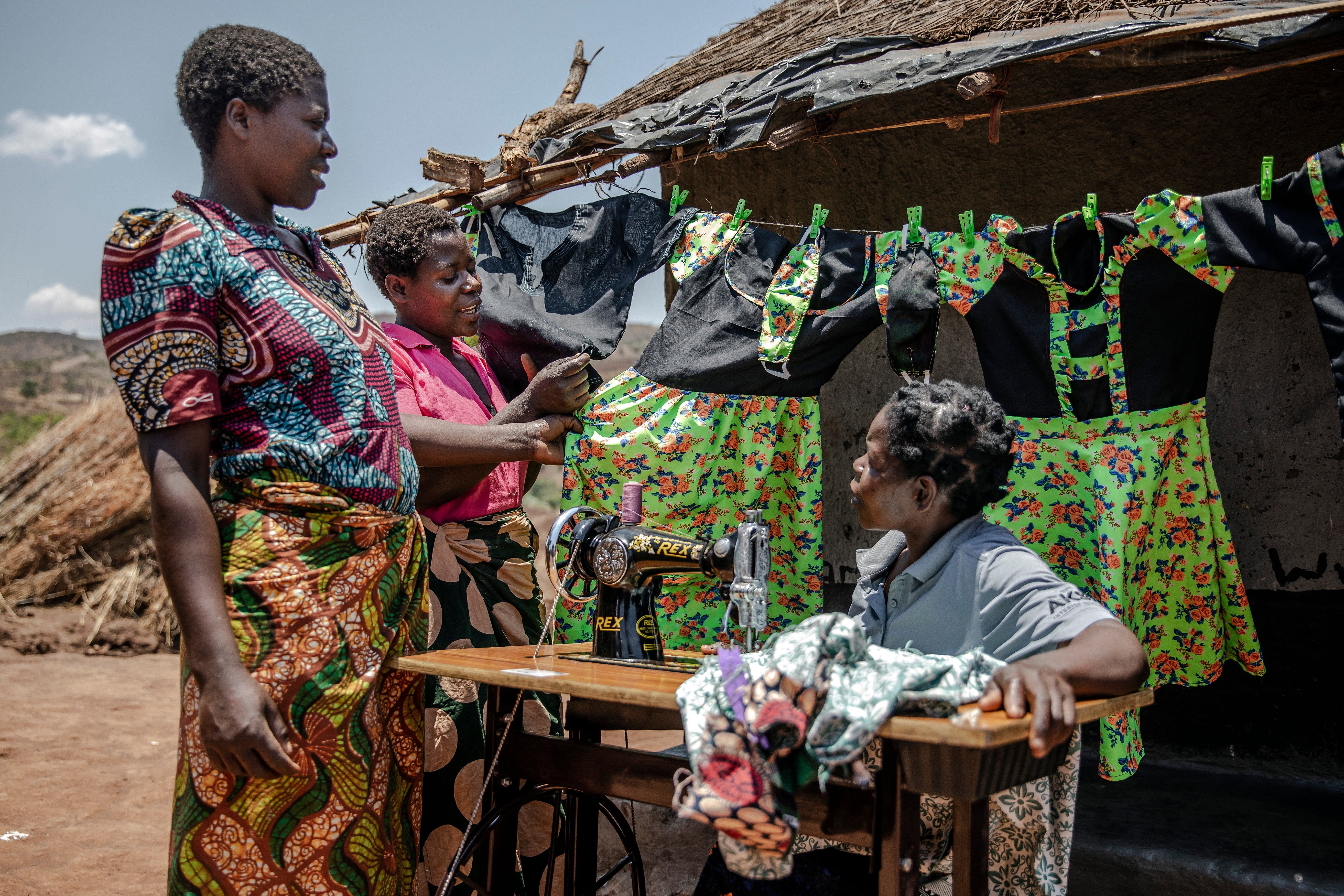
With time, Marita soon learnt to accept her condition. One day, as she was listening to the radio, she had a testimony of a woman who was successfully treated of fistula. She listened with interest and learnt that the operation was done at Bwaila Fistula Centre in Lilongwe.
Marita saved enough money for transport to seek for treatment at the Centre. The waiting list was long. She stayed at the Centre for a month and finally got repaired of fistula.
Helping fistula survivors reintegrate in society
“The support I received from the fistula centre transformed my life,” says Marita, who is now a fistula ambassador in her community. “I have moved from being a social outcast to become one of the community respected tailors.”
As one way to help her reintegrate in her community, the Bwaila Fistula Centre with support from the European Union funded Spotlight Initiative, trained Marita and other 48 fistula ambassadors in tailoring. The ambassadors’, including Marita, were each given a sewing machine to help them establish tailoring shops for income generation.
Today, Marita is a well-known tailor in her community. She sews’ dresses, suits and all type of uniforms. In a good month, Marita makes about US$80. And when its wedding season, her earnings goes up to more than US$100 per month, she says.
“I am saving money to buy iron sheets for my house,” she says. “I have lived a difficult life and now just want to make the best of what I have.”
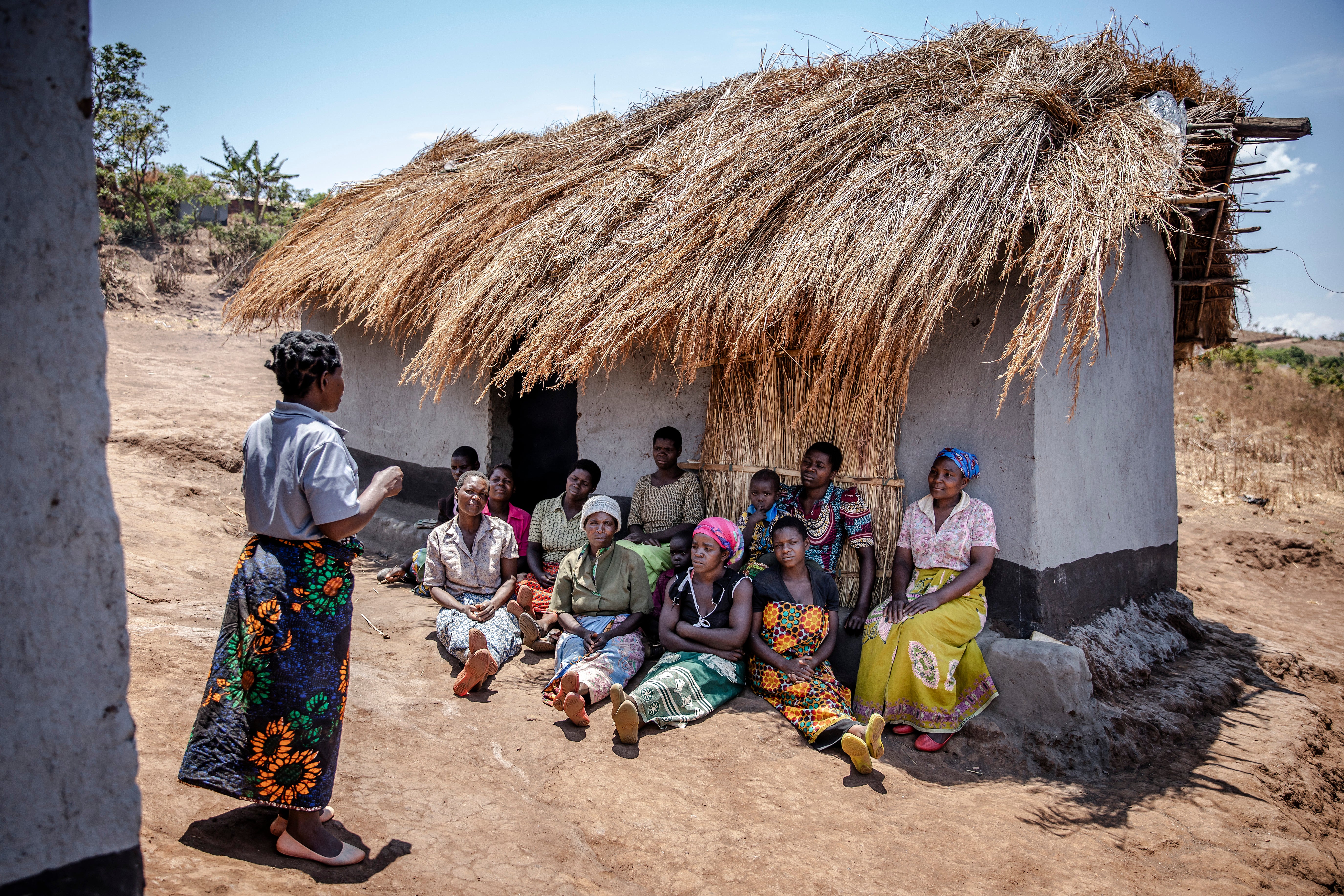
In 2021, UNFPA successfully lobbied for the re-opening of the Bwaila Fistula Centre after it was converted into a Covid-19 isolation centre. The closing of the Centre inconvenienced hundreds of women suffering from fistula from getting treatment. Since re-opening, the Centre with support from the Spotlight Initiative, has successfully repaired 90 women suffering from fistula.
Joseph Scott, Communication Analyst
The Ministry for Foreign Affairs of Iceland and UNFPA have signed a $7 million landmark agreement to help end obstetric fistula in Sierra Leone and improve the lives of the women and girls suffering from this preventable condition. Sierra Leone has one of the highest lifetime risks of pregnancy-related mortality and morbidity, including obstetric fistula.
Read MoreThe Ministry for Foreign Affairs of Iceland and UNFPA have signed a $7 million landmark agreement to help end obstetric fistula in Sierra Leone and improve the lives of the women and girls suffering from this preventable condition. Sierra Leone has one of the highest lifetime risks of pregnancy-related mortality and morbidity, including obstetric fistula.
Obstetric fistula is one of the most serious and tragic childbirth injuries. Women suffering from obstetric fistula are often stigmatized and isolated from their families and communities. They face significant socioeconomic challenges and often do not have access to social-economic development opportunities in their communities.
“Obstetric fistula is a neglected health and human rights tragedy that affects the most vulnerable women and girls. It is embedded in gender inequalities and social norms and constitutes an impediment to women and girls’ empowerment.” says UNFPA West and Central Africa Regional Director Argentina Matavel-Piccin.
In recent years, Iceland has been supporting the Government of Sierra Leone in its efforts to prevent and treat obstetric fistula, with the aim to improve access to quality maternal health services to prevent and manage obstetric fistula. This new landmark agreement will provide medium- to long-term support to end obstetric fistula in the country, and is part of the global Campaign to End Fistula launched by UNFPA and its partners in 2003.
The five-year programme will take a comprehensive and integrated approach to obstetric fistula, by addressing the gender and other social norms, and health systems challenges contributing to the occurrence of obstetric fistula. The new partnership will strengthen the referral system for surgery and social reintegration initiatives, and will focus on documenting best practices to help shape other existing and future programmes.
By the term of the programme, the capacity of the country’s health system will be strengthened to improve adolescent girls’ and women’s access to integrated sexual and reproductive health services for prevention, treatment and social reintegration of obstetric fistula.
“Iceland has been a firm supporter of the Global Campaign to End Fistula for more than a decade – both financially through UNFPA and through our advocacy efforts for sexual and reproductive health and rights at the international level,” said Thórdís Kolbrún Reykfjörd Gylfadóttir, Minister for Foreign Affairs and International Development Cooperation of Iceland. “We are very proud to be part of this programme and work together with UNFPA and the Government of Sierra Leone toward the elimination of obstetric fistula in the country.”
“Our long-standing partnership with the Government of Iceland plays a critical role in supporting UNFPA’s ongoing campaign to end obstetric fistula in Sierra Leone and globally, and in restoring women’s dignity worldwide,” said UNFPA’s Matavel-Piccin.
"I'm capable of everything" - An Obstetric Fistula Survivor's Journey in Mozambique #EndFistula
Watch the video"I'm capable of everything" - An Obstetric Fistula Survivor's Journey in Mozambique #EndFistula